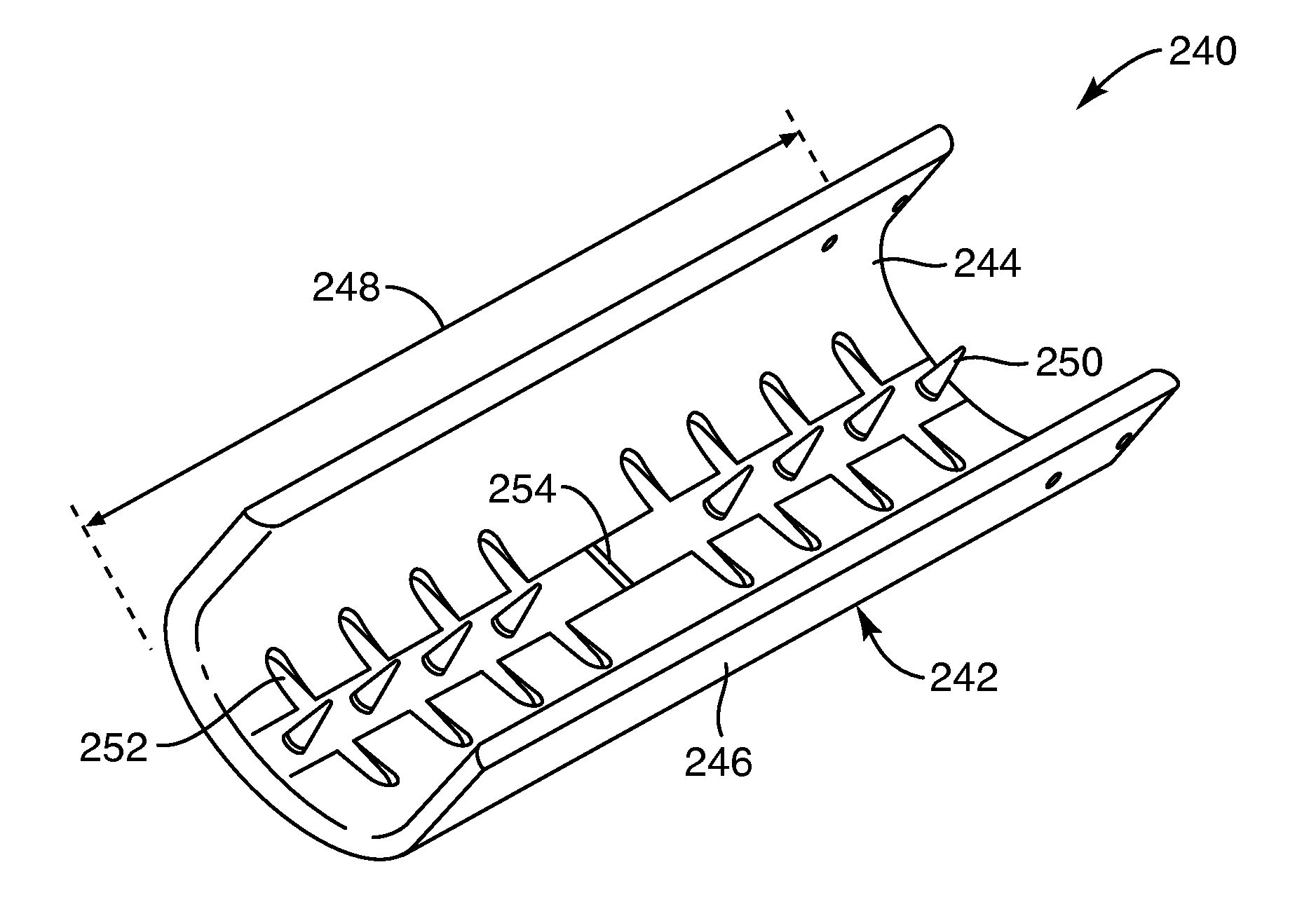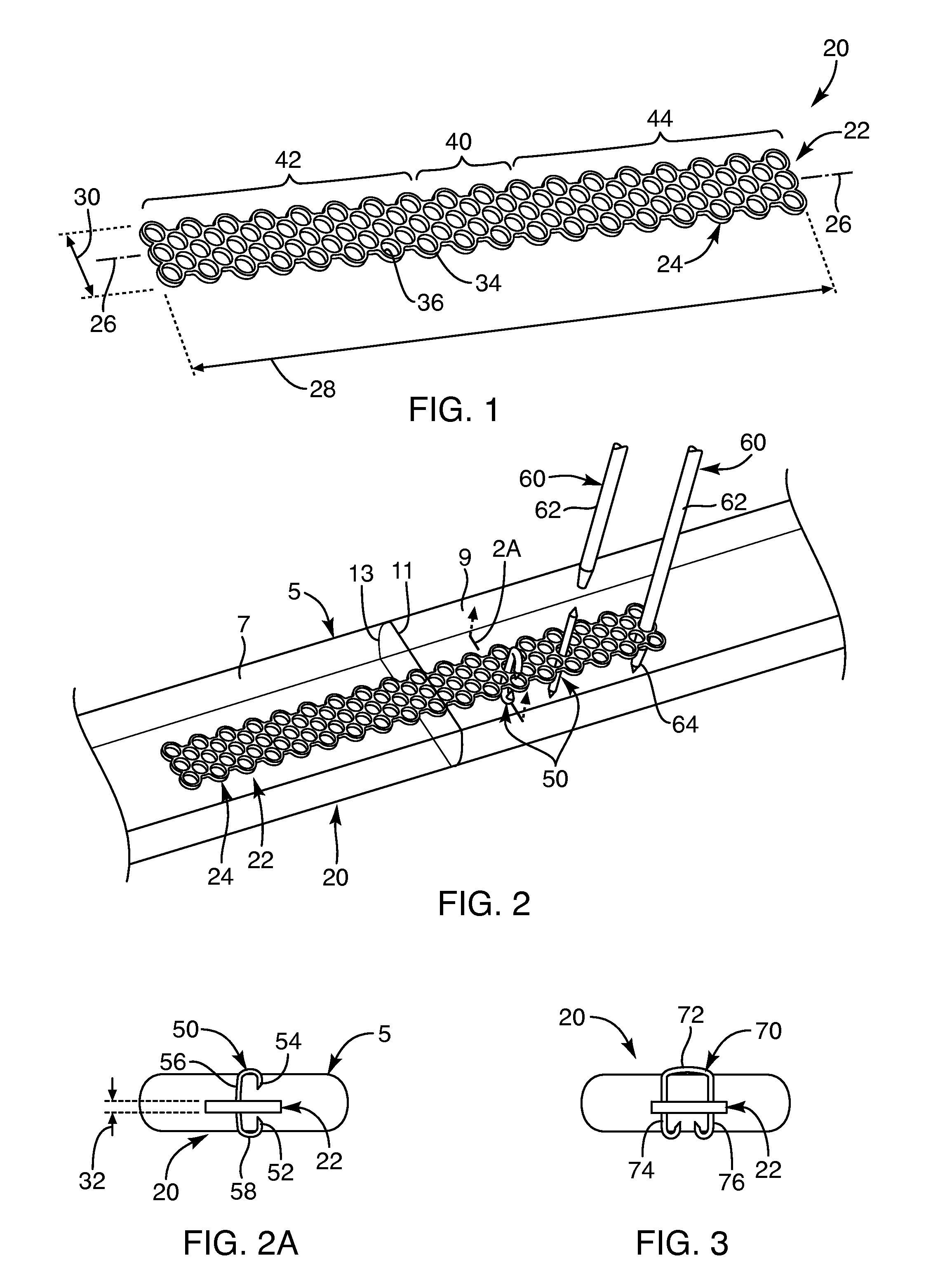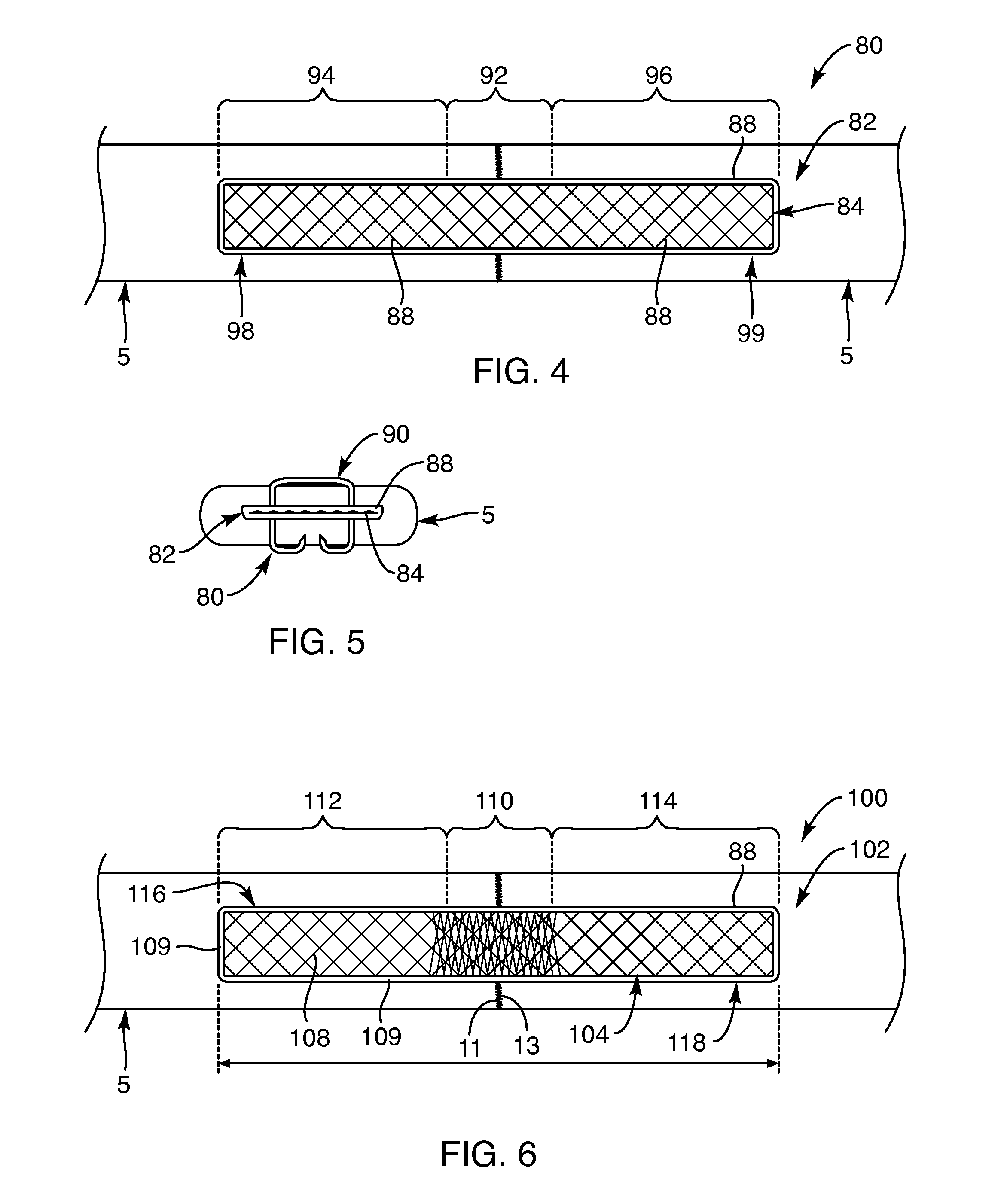Soft tissue repair devices, systems, and methods
a soft tissue and repair device technology, applied in the field of soft tissue repair devices, systems and methods, can solve the problems of affecting the repair outcome, affecting the repair effect, and affecting the repair quality
- Summary
- Abstract
- Description
- Claims
- Application Information
AI Technical Summary
Benefits of technology
Problems solved by technology
Method used
Image
Examples
Embodiment Construction
[0070]Various embodiments are disclosed herein of a soft tissue repair device. Such repair device may be sized and configured to approximate and fuse, for example, a lacerated tendon. The various embodiments may provide structure that maintains two ends of a lacerated tendon in an abutting relationship, without gapping, while allowing the tendon adjacent the tendon ends and along the length of the repair device to provide controlled elongation of the tendon. In this manner, the repair device of the present invention may provide the proper healing required for fusing the tendon ends while still providing movement of the tendon to minimize atrophy and potential adhesions.
[0071]Referring to FIGS. 1, 2, and 2A, one embodiment of a repair device 20 for tendon or ligament repair is depicted. With respect to FIG. 1, the repair device 20 may include an elongated flat member 22 that exhibits a lattice structure 24. The elongated flat member may define a longitudinal axis 26 and extend with a...
PUM
| Property | Measurement | Unit |
|---|---|---|
| thick | aaaaa | aaaaa |
| distance | aaaaa | aaaaa |
| thick | aaaaa | aaaaa |
Abstract
Description
Claims
Application Information
 Login to View More
Login to View More - R&D
- Intellectual Property
- Life Sciences
- Materials
- Tech Scout
- Unparalleled Data Quality
- Higher Quality Content
- 60% Fewer Hallucinations
Browse by: Latest US Patents, China's latest patents, Technical Efficacy Thesaurus, Application Domain, Technology Topic, Popular Technical Reports.
© 2025 PatSnap. All rights reserved.Legal|Privacy policy|Modern Slavery Act Transparency Statement|Sitemap|About US| Contact US: help@patsnap.com



